Posted on 1/30/2026
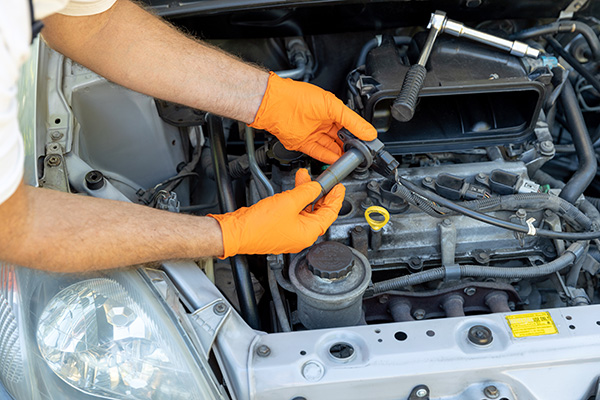
When an engine starts running rough, most drivers jump straight to the spark plugs. That makes sense because plugs are common wear items. But ignition coils fail plenty often, too, and the symptoms can overlap in a way that makes guessing expensive. The good news is your car usually gives a few clues that point more toward plugs, more toward coils, or sometimes a different problem entirely. How Spark Plugs And Coils Work Together Spark plugs create the spark that ignites the air-fuel mix in the cylinder. Ignition coils provide the high voltage that makes that spark happen. In many modern cars, each cylinder has its own coil sitting on top of its spark plug. When everything is healthy, the spark is strong and consistent. When either part starts failing, combustion gets inconsistent, and that’s when you feel the roughness. Because the coil and plug work as a pair, a weak plug can stress a coil, and a weak coil can foul a plug. That’s why it’s smart ... read more
Posted on 12/19/2025
%20copy.jpg)
Winter can be tough on vehicles, whether you live somewhere that uses road salt or in a dry area where sand and dust are everywhere. The problems look different, but they all add up to extra wear on paint, brakes, suspension, and underbody components. If you understand how your local roads attack your car, it is much easier to choose the right protection and maintenance before winter really takes hold. How Winter Conditions Attack Your Car Cold temperatures alone are not the main problem. It is what comes with them. In colder, wetter climates, road crews use salt or brine solutions to melt ice. That salty moisture splashes onto the underbody, brakes, and wheels, then sits there until it dries, leaving corrosive residue behind. Over time, that residue eats into metal, hardware, and even electrical connectors. In drier regions, winter can still be hard on a car. Dusty roads, blowing sand, and large temperature swings beat up rubber parts, paint, and glass. Grit gets ... read more
Posted on 11/28/2025
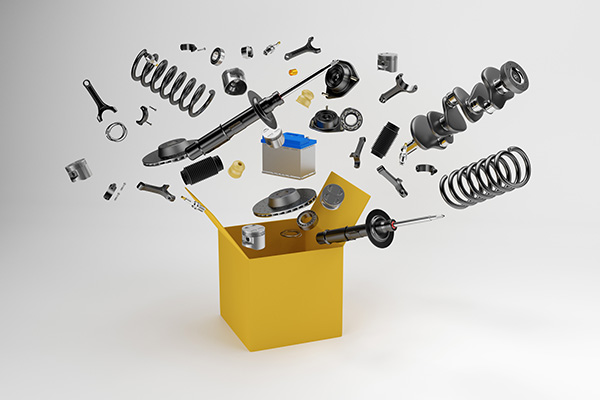
Finding the right gift for a car lover gets easier when you focus on gear they will use all year. The best presents make driving safer, maintenance simpler, and weekend projects more enjoyable. They also fit different budgets, so you can choose a thoughtful item without guessing at vehicle-specific parts. Here are ten ideas that balance practicality with a little fun and will make any enthusiast smile. 1) Compact Lithium Jump Starter A pocket-sized jump pack can revive a dead battery without hunting for jumper cables or a second car. Look for reverse polarity protection and a clear charge indicator, since those features help new users feel confident. Built-in flashlights are handy when a battery dies in a dark parking lot. Add a zip case so the pack and leads stay together in the glove box. 2) Quality Torque Wrench A click-type torque wrench protects threads and ensures wheels, spark plugs, and brake components are tightened correctly. Choose one ... read more
Posted on 10/31/2025

A smooth highway ride is something most drivers take for granted until the steering wheel starts shaking or the whole car begins to vibrate. If your vehicle feels fine around town but starts to shake when you hit 55 or 65 mph, it’s a sign that something mechanical isn’t quite right. The problem could be as simple as a tire imbalance, or it could point to worn suspension components, alignment issues, or failing drivetrain parts. Identifying the root cause early can save you money and keep your car safer on the road. Tire Balance Is the Most Common Culprit When a tire is out of balance, it causes uneven rotation at higher speeds. Even a small weight imbalance can lead to noticeable vibration, especially through the steering wheel. You may not feel it at lower speeds, but once you reach highway velocity, the shaking becomes more pronounced. A wheel balancing service involves attaching small weights to the wheel rim to even out any imbalance. Most tire shop ... read more
Posted on 9/27/2025
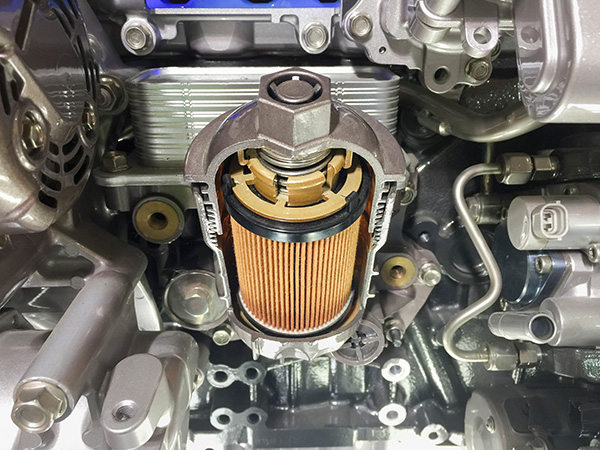
Your vehicle’s fuel system works hard every time you start the engine, and one small but vital component keeps it running smoothly: the fuel filter. Its job is simple but critical. It traps dirt, rust, and other contaminants before they reach the engine. Over time, the filter becomes clogged, which can affect fuel delivery, reduce efficiency, and even damage expensive components. Knowing when to replace your fuel filter helps keep your engine performing at its best and avoids unexpected breakdowns. The Role of the Fuel Filter Every time you fill your gas tank, there’s a chance small amounts of dirt, debris, or impurities enter the system. Without a filter, those contaminants would reach the injectors and combustion chambers, where they can create buildup, reduce performance, and shorten engine life. The fuel filter acts as a protective barrier, keeping fuel clean so the engine runs efficiently and reliably. A clogged or damaged filter can’t do its ... read more
Posted on 8/29/2025

Driving from one side of the country to the other is more than just a long trip—it’s a true test of your vehicle, your patience, and your preparation. As a repair shop owner, I decided to take the opportunity to drive cross-country between Nevada and North Carolina not just for the adventure, but also to observe how vehicles behave over long distances and in different conditions. Here are some valuable insights and lessons from the journey, aimed at helping you get more out of your vehicle on long road trips and beyond. Pre-Trip Inspections Are Worth Every Minute Before hitting the road, I give my vehicle a full inspection. That included checking fluids, belts, hoses, tires, brakes, and filters. What I realized early on is that many road breakdowns can be avoided with simple preparation. Drivers often assume their car is fine if nothing feels wrong, but long-distance driving places a different kind of stress on your systems. For example, a tire that&rsq ... read more
Posted on 7/25/2025
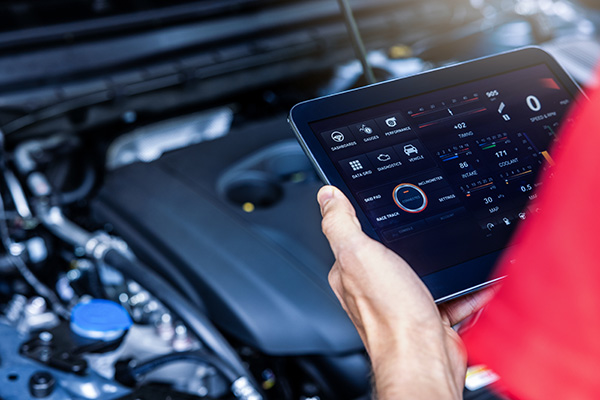
Modern vehicles are more advanced than ever, packed with sophisticated technology that makes them safer, more efficient, and more reliable. Along with these advancements comes a greater reliance on computer systems to monitor and manage your car’s various functions. When something goes wrong, computer diagnostics play a key role in identifying mechanical problems quickly and accurately. Understanding how this process works can help you appreciate the value of these tools and why professional inspections are so important. What Are Computer Diagnostics Computer diagnostics involve using specialized scanning tools to communicate with your car’s onboard computer systems. These systems, often referred to as the engine control module (ECM) or powertrain control module (PCM), constantly monitor data from sensors throughout your vehicle. When the system detects something outside of normal parameters, it stores a trouble code and often triggers a dashboard warnin ... read more
Posted on 6/27/2025
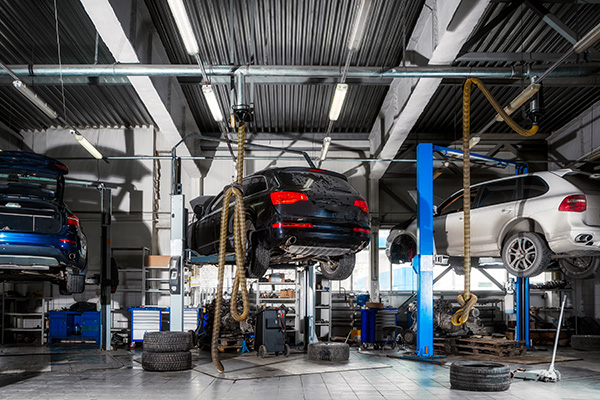
Every vehicle owner wants their car to last as long as possible and perform at its best. One of the most effective ways to achieve this is by following a mileage-based maintenance schedule, particularly the 30,000-, 60,000-, and 90,000-mile service intervals. These services are designed to check and refresh your car’s most critical systems at key points in its lifespan. You might be wondering if these services are really necessary, especially if your car seems to be running fine. The truth is that skipping these scheduled maintenance intervals can lead to premature wear, reduced fuel efficiency, and costly breakdowns that could have been prevented with routine care. What Happens During a 30,000-Mile Service At 30,000 miles, your car is still relatively new, but it has already gone through significant use. This first major service focuses on replacing filters, inspecting fluids, and checking for early wear. Technicians typically change the engine air filter an ... read more
Posted on 5/30/2025
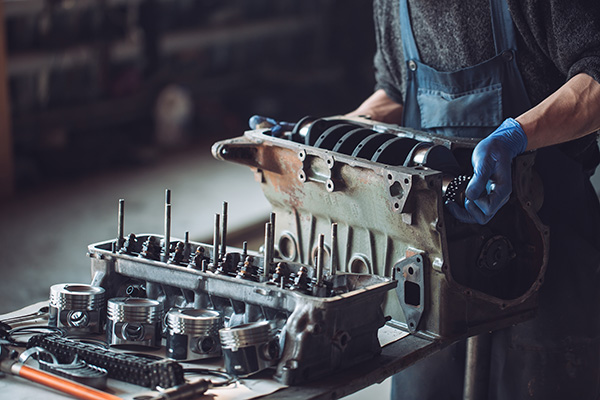
Your engine generates a lot of heat—and it’s the cooling system’s job to keep that heat under control. When everything’s working properly, coolant flows through the engine, absorbs excess heat, and cycles it away through the radiator. But when something fails in that system, temperatures rise fast—and the consequences can be serious. Ignoring cooling system problems doesn’t just put your radiator at risk. It can lead to major engine damage that’s expensive to repair. Here are six engine problems that often result from overheating caused by cooling system failure. 1. Blown Head Gasket When your engine overheats, one of the first components at risk is the head gasket. This crucial seal sits between the engine block and cylinder head and keeps oil, coolant, and combustion pressure separate. If temperatures spike, the metal surfaces can expand unevenly, compromising the seal. Once the head gasket fails, coolant can leak into th ... read more
Posted on 4/25/2025
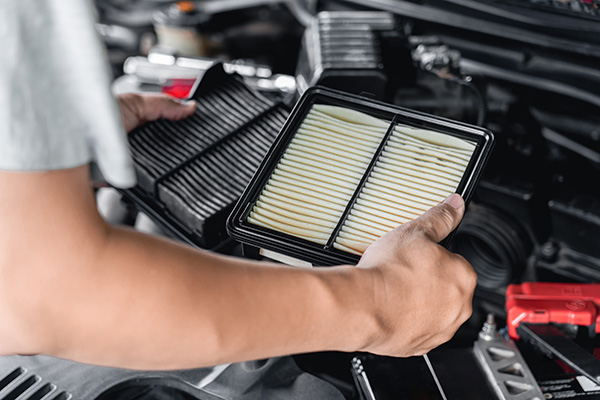
Your car feels a little sluggish lately. It still starts fine, and there are no warning lights on the dash, but when you press the gas pedal, there’s a delay—or just not as much power as you’re used to. Could something as simple as a dirty air filter be the cause? Absolutely. A clogged air filter can make your car feel slower, less responsive, and even burn more fuel than necessary. While air filters aren’t as flashy as performance parts or tuning upgrades, they’re one of the most important components for maintaining engine health and drivability. Let’s take a closer look at how a dirty air filter impacts acceleration, what signs to watch for, and when it’s time to replace it. Clean Air Matters for Performance Your engine needs three things to run properly: fuel, spark, and air. The air filter’s job is to protect the engine from dust, dirt, and debris while allowing enough clean air to flow into the combustion chamber ... read more